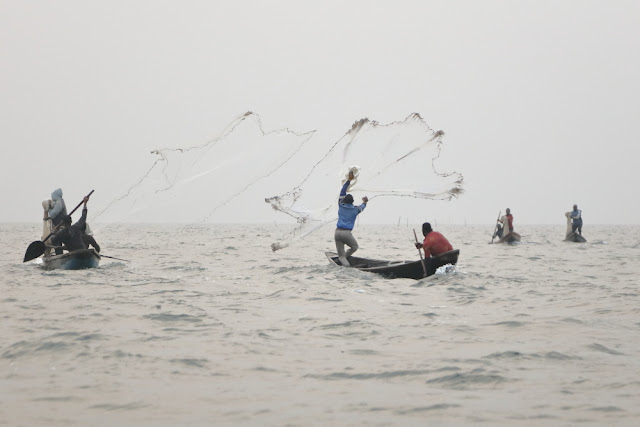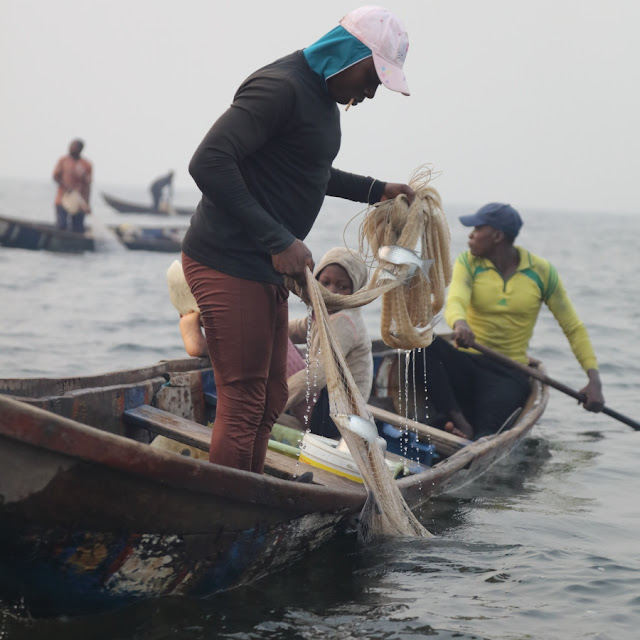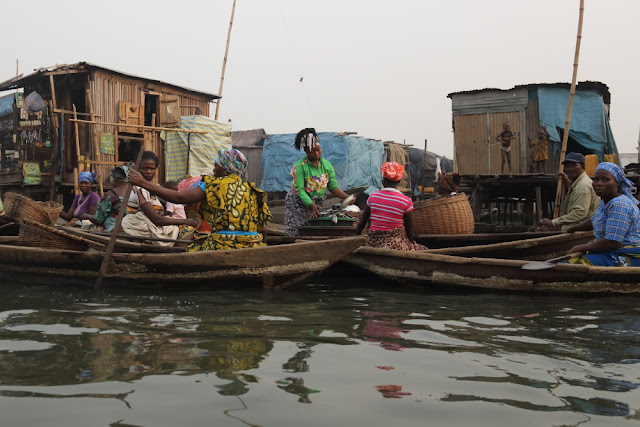 |
| throwing nets in circle |
It is dark, 4AM perhaps. Wooden boats leave Makoko, paddling towards the lagoon. First, they pass under the Third Mainland Bridge, then head towards the middle of the water expanse that separates the Lekki peninsula from the Mainland. Groups of ten boats go fishing together. Each boat carries two people, sometimes three if a younger one joins to observe, learn and help sort out the fishes from the net when it comes out of the water. The person sitting at the back has the responsibility to direct the boat and keep its balance when the one at the front stands and throws the net with a gyrating movement.
 |
| pulling the nets |
The fishermen are wearing long sleeves and usually trousers. The wind in the middle of the lagoon can be chilly and one is rapidly wet from the contact with waves and bringing up the net. The fishing routine comes as follows: the group of ten boats decides in which area where they hope to catch fish. They form a circle, wide enough to be able to throw their nets simultaneously inside the circle. Ballast is attached all around the net so that it can reach the bottom of the water. Fishermen wait for a few minutes for the fishes to trap themselves in the net and then pull it by a rope tied in the centre of the net. Gravity regroups the ballast catching fishes by surprised inside the net.
 |
| good catch |
Fishes are then detached and thrown at the bottom of the boat while the net is being neatly folded in loops to allow it to be thrown again. After that, men grab their paddles and move in silence through wind and the waves to the next destination to repeat the throwing and catching ritual. They go home mid-morning to bring the fish to their wives who are in charge of selling it fresh or smoked.
 |
| getting the fish out of the net |
 |
| woman selling fresh fish |










Comments
Post a Comment